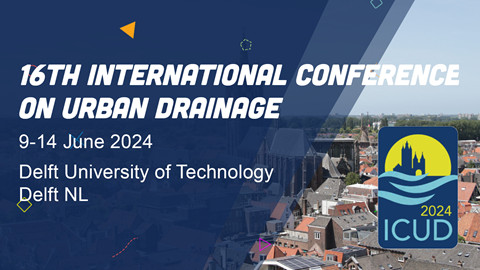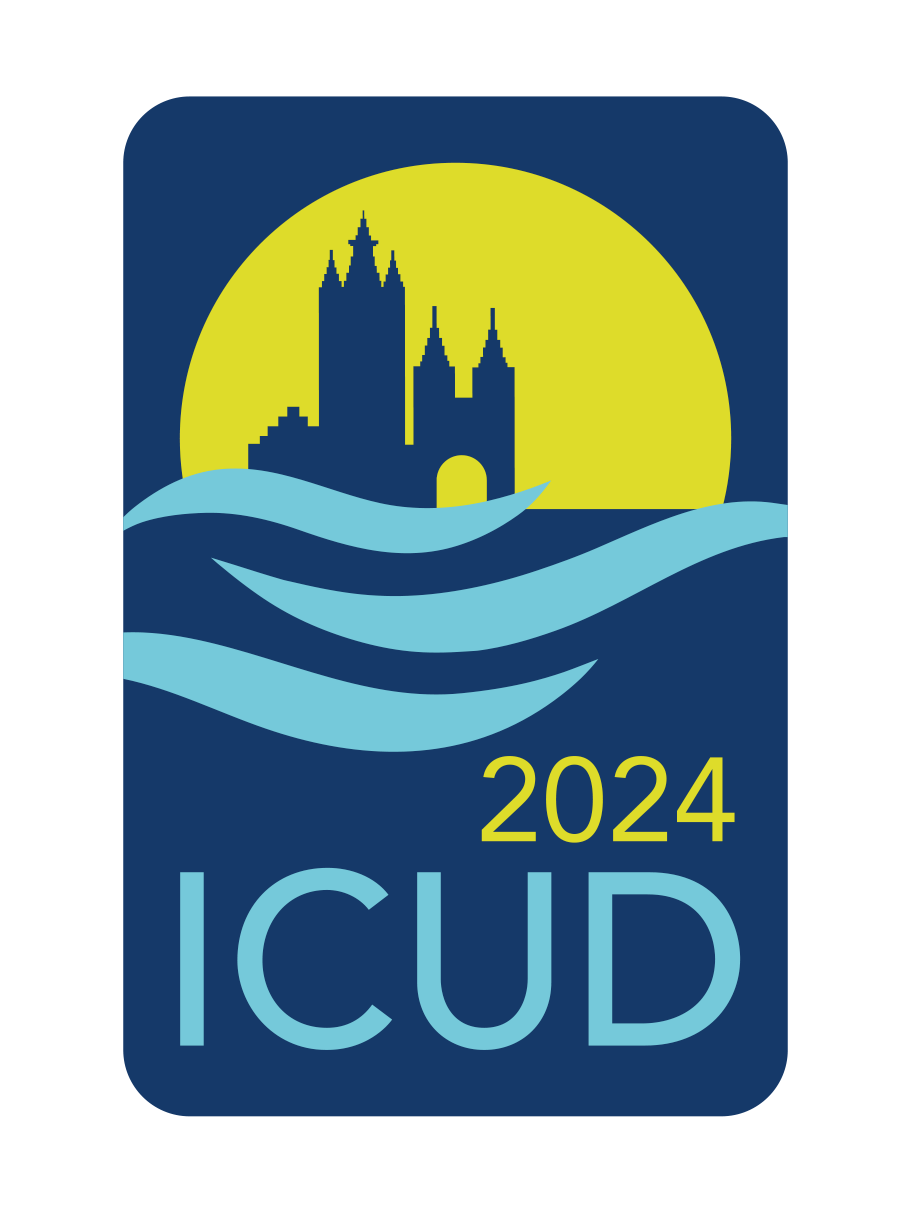Report from the 16th International Conference on Urban Drainage 2024
The International Conference on Urban Drainage (ICUD) is organised every two years by the IAHR/IWA Joint Committee on Urban Drainage
The 16th International Conference on Urban Drainage was held in Delft from 9 to 14 June 2024. The conference addressed a wide range of topics of direct interest to both academics and practitioners working in the field of urban drainage. The focus was on complex and interdisciplinary challenges in these systems related to management, sustainability, climate change adaptation, socio-economic and other aspects. The aim was to present the latest advances and innovations in both fundamental and applied research related to these and other topics.
A total of 360 extended abstracts / papers were received and presented, either as full or shorter (flash) oral presentation in 5 parallel sessions that were held during the five conference days. A number of posters were also presented during the conference. The conference was attended by 519 registered delegates from around 60 different countries from all five continents. Selected conference papers have been invited for publication in the Water Science and Technology journal. Technical excursions to local urban drainage and other facilities in Rotterdam, Amsterdam, Gouda and Delft were organised allowing glimpse into specific challenges of Dutch urban drainage systems. All these were well attended and received a positive feedback from the participants.
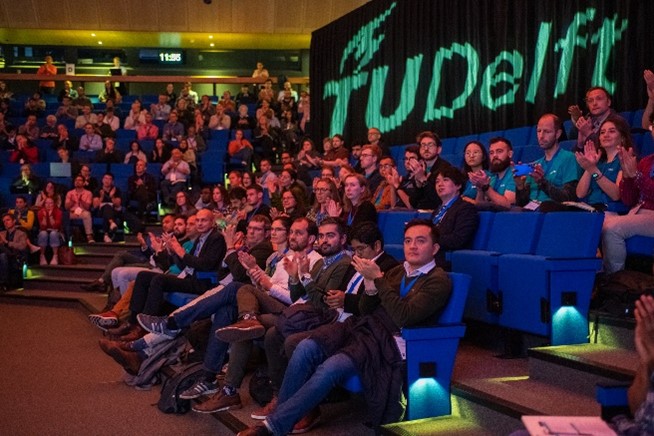
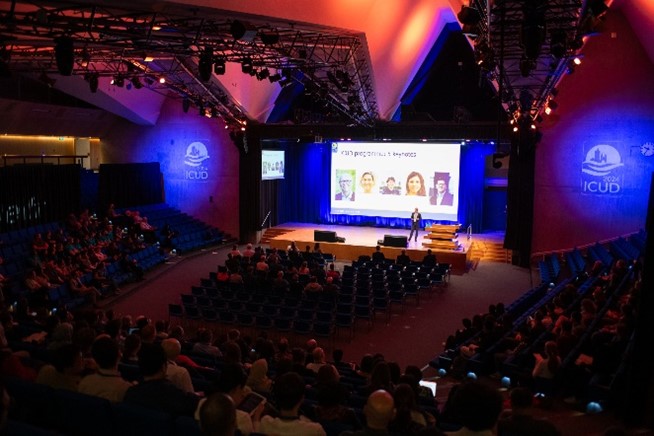
The ICUD 2024 conference featured five inspiring keynote talks. Prof Perter Steen Mikkelsen from Technical University of Denmark reflected on previous 30 years of research in urban drainage while Dr Wendy Francken, President of the European Water Association and Vlario, delivered an informative talk on the implications and challenges of the new European Directive. Prof David McCarthy from Queensland University of Technology delivered an inspiring talk on low cost sensors whilst Dr Lena Mutzner, young water professional from the EAWAG in Switzerland, talked about various aspects of emerging pollutants in urban drainage systems. The final day of the conference saw a keynote talk delivered by Prof Michael Templeton from Imperial College London on sustainable sanitation using non-sewered solutions in lower-middle income countries. Keynote talks were followed by interactive Q&A sessions and have clearly inspired conference participants, especially the young water professionals.
A number of awards were presented during the conference. The Poul Harremoës award for the best urban drainage paper by a young water professional was awarded to Travis Dantzer from the University of Michigan in the US for his work on “Tunable linear feedback control of urban drainage systems using models defined purely from data”. The JCUD Mid-Career Achievement award was presented to Prof Manfred Kleidorfer from the Innsbruck University whilst the Career Achievement Awards was given to Prof Ana Deletic from the Queensland University of Technology, both for outstanding respective contributions to the field of urban drainage.
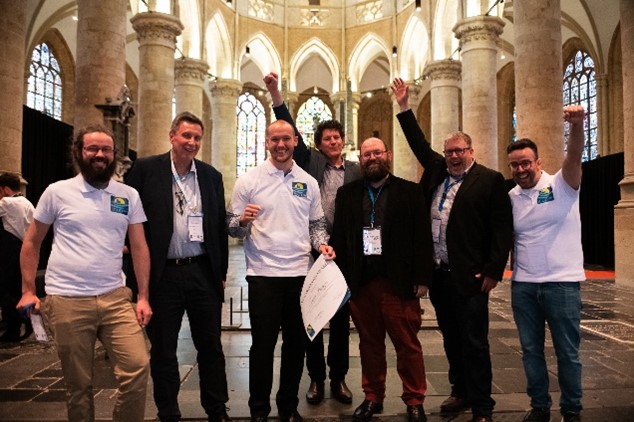
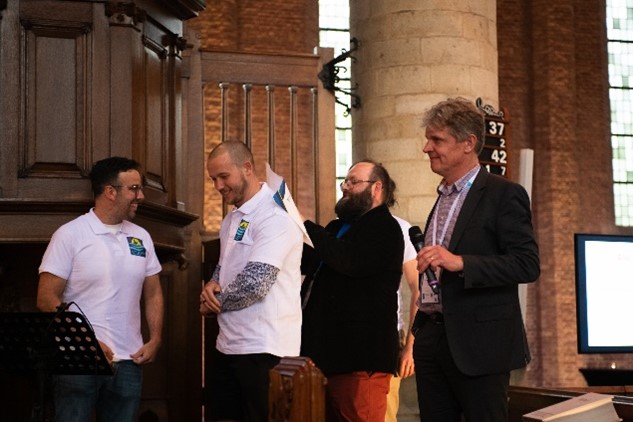
The conference concluded with the following key observations:
It was great to see that the field of urban drainage is going on as strong as ever with researchers and practitioners addressing a wide range of important and complex challenges. This trend is likely to continue into the future.
Even though the conference addressed a wide range of challenges and issues across the urban water cycle some topics received more attention than the other. An increasing number of researchers seem to be focusing on different aspects of sustainable drainage solutions (aka blue-green infrastructure) and related water quality issues, including emerging pollutants. Also, quite a few presentations were made on improved real-time control of urban drainage systems and a related topic of the development of new methods and sensors that are needed for this. Finally, it is clear that artificial intelligence and machine learning methods are being increasingly used to address a wide range of challenges in urban drainage and this trend is likely to continue into the future.
Finally, it has become clear from the presentations and discussions that addressing complex challenges in urban drainage requires an increasingly inter-disciplinary based approach. This approach is already used in the community but this is likely to increase substantially in the future.
The ICUD 2024 was a great success, as noted by many conference participants in their informal feedback and posts made in social media, both during and after the event.
The 17th International Conference on Urban Drainage will be held in Ningbo, China, on June 2027.
